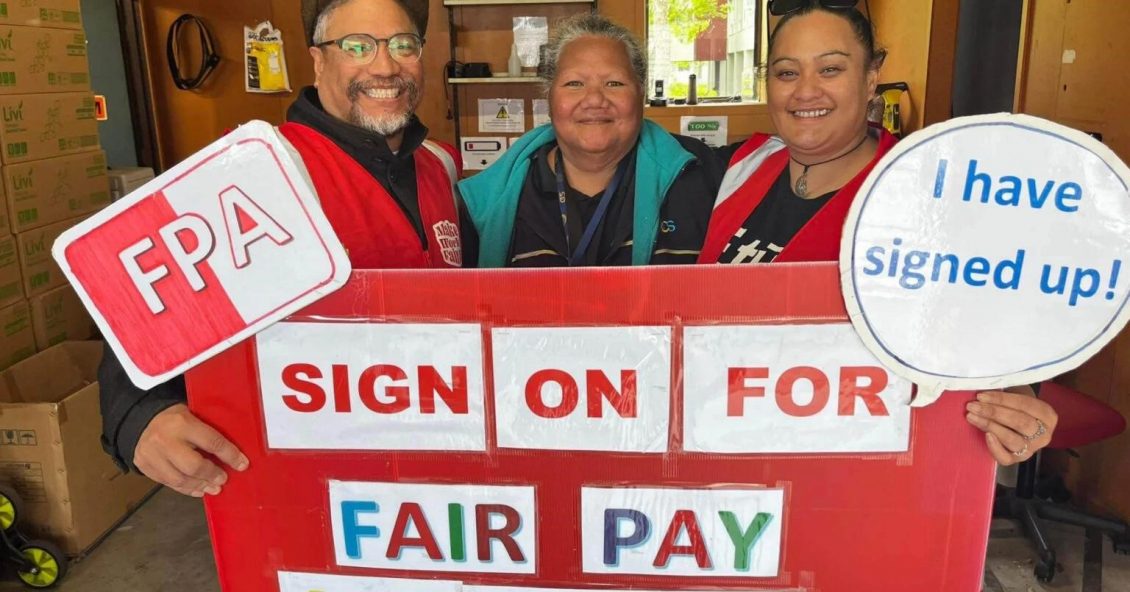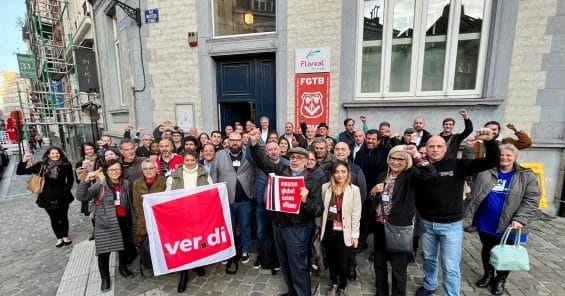New Zealand security guards set to benefit from ground-breaking Fair Pay Agreement
30.03.23
Security guards in New Zealand are celebrating a significant victory for fair pay and working conditions by setting the process in motion for their first-ever Fair Pay Agreement.
The recently passed Fair Pay Agreements Bill has paved the way for a ground-breaking Fair Pay Agreement (FPA) for these workers, which enables sectoral or occupational bargaining between workers and employers in the industry.
On Wednesday, their union, E tū, completed the first step to setting up a Fair Pay Agreement by sending through more than 1000 signatures from security guards all over the country to the Government to initiate the bargaining process.
The FPA process will empower security guards to negotiate for better pay and working conditions and ensure they work in safe and dignified conditions.
“This is not just a great achievement for security guards, cleaners and other workers, but a critical step towards achieving fair and just wages and working conditions in New Zealand’s labour market. The power of collective bargaining cannot be underestimated, as it is a vital tool to protect workers’ rights and prevent employers from competing through low wages. The Fair Pay Agreement will empower security guards to raise their standards, skills and training, ensuring that they work in safe and dignified conditions. This is a significant win for workers’ rights, and it demonstrates that collective action can bring positive change,” declared Eddy Stam, UNI Global Union’s Head for Property Services.
New Zealand policymakers recognized the need for sectoral bargaining, rather than just improvements to worksite-level bargaining, due to the country’s history with bargaining agreements and international research. In the late 1980s and early 1990s, New Zealand made a series of changes that undermined sectoral bargaining and unions, leading to a labour system more like the United States, which has weaker unions and primarily worksite-based bargaining. This system has resulted in several decades of rising inequality, slow wage growth and low productivity, despite promises from business leaders and politicians who supported the neoliberal economic reforms.
In 2000, New Zealand attempted to strengthen unions and improve collective bargaining, but the effort proved unsuccessful without a strong push for sectoral bargaining. The Fair Pay
Fair Pay Agreements provide an opportunity for workers to negotiate better pay and working conditions through collective bargaining and to prevent employers from competing through low wages.
The FPA negotiation process will enable security guards to raise the standards of their working conditions, lift their pay, improve health and safety, and create opportunities for training and development. The process also provides an opportunity for security guards to address industry issues in a collective conversation and find possible solutions.
E tū delegate and security guard Rosey Ngakopu, who has been campaigning for Fair Pay Agreements for the past four years, says she’s excited it’s finally time to initiate an agreement:
“It’s an awesome feeling – all our hard work has paid off. Fair Pay Agreements will mean we’ll be able to address industry issues in a collective conversation and find possible solutions.
“FPAs are about raising the standards of our working conditions, lifting our pay, skills and training, and making sure we have everything we need on site to work safely and with dignity. I can’t wait to get around the bargaining table and start negotiating.”
New Zealand’s experiences and actions highlight the need to incorporate sectoral bargaining in any policy to improve working conditions. The Fair Pay Agreements Bill was passed in October 2022.
UNI Asia & Pacific


